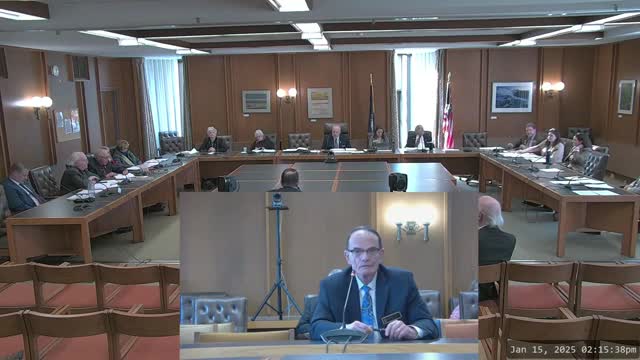Committee hears testimony in support of reauthorizing Right‑to‑Know Ombudsman; office reports 77 filed matters, 277 inquiries
Get AI-powered insights, summaries, and transcripts
Subscribe
Summary
The committee heard from Right‑to‑Know Ombudsman Thomas Kerr, who reported 277 inquiries and 77 filed matters since the office began staffing in Jan. 2023. Supporters urged reauthorization and additional resources and a user guide; the judicial branch reported fewer superior‑court 91‑A filings since the ombudsman began.
The House Judiciary Committee heard public testimony and a briefing from Right‑to‑Know Ombudsman Thomas Kerr on HB 111, which would extend the office for two more years.
Kerr, who staffs the office, told the committee his office received 277 inquiries and 77 filed matters since he took the position in January 2023. He said 47 matters have closed and 29 remained open, and that case durations vary depending on procedural steps and whether parties request in‑camera reviews, continuances or expedited treatment. “The shortest period from filing to conclusion was eight days,” Kerr said; his office is administratively attached to the Department of State but is staffed solely by him.
Testimony came from Right to Know New Hampshire and citizens who urged reauthorization and additional support. Right to Know NH said the office gives members of the public a lower‑cost alternative to superior‑court litigation and cited cases in which the Ombudsman corrected public‑meeting minutes or resolved disputes without litigation. Several witnesses said the office is a critical access point for citizens who cannot afford court and asked the committee to provide administrative support and a citizen’s guide to the process.
Opponents and critics raised concerns about municipalities bringing counsel into ombudsman proceedings and about threats of attorney‑fee recoupment that can chill public requests. Committee members asked Kerr about administrative rules, caseload metrics and whether the office would benefit from additional staff. Kerr said his rules took effect May 20, 2024, and that he needs administrative support, a paralegal, and a user guide to handle the caseload and make the office more accessible.
Administrative counsel for the judicial branch provided a spot count showing a substantial decline in superior‑court RSA 91‑A filings since the ombudsman began operations, with anecdotal spot counts dropping from roughly 40–45 filings per year to below 10 in the most recent year.
Ending: The committee closed the public hearing and expected to consider budget and resource questions as it decides whether to extend the office’s sunset and whether to provide additional staff or materials for public guidance.
